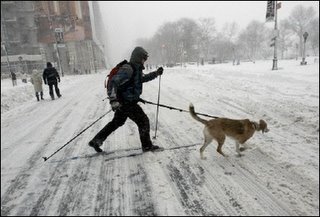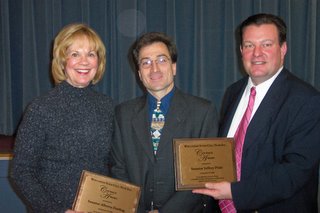
February 16, 2006
Op-Ed Contributor
All Clones Are Not the Same
By MICHAEL GAZZANIGA
Hanover, N.H.
IT has been weeks since President Bush's State of the Union speech, and I have not heard any outcry over his policy statement on cloning: "Tonight I ask you to pass legislation to prohibit the most egregious abuses of medical research: human cloning in all its forms." I can only guess that this means the public doesn't care, or doesn't understand what Mr. Bush means by this, or agrees with his nonsensical concept of what "human" means, or that somehow the stem cell scandal in South Korea has led to widespread agreement that we should just give up on such research. Any of these possibilities would be a mistake, not just for American science, but for the very human life the president seeks to protect.
Calling human cloning in all its forms an "egregious abuse" is a serious mischaracterization. This makes it sound as if the medical community is out there cloning people, which is simply not true. The phrase "in all of its forms" is code, a way of conflating very different things: reproductive cloning and biomedical cloning.
The volatile issue has been debated again and again, and the president's own largely conservative Bioethics Council (of which I am a member) in 2002 made a big distinction between the two forms of cloning. We voted unanimously to ban reproductive cloning — the kind of cloning that seeks to replicate a human being. We cited many reasons, from biomedical risk to religious concerns to the flat-out weirdness of the idea. But in fact human cloning has not been attempted, nor is it in the works; so it's a theoretical ban in the first place, like banning marriage between robots.
At the same time, the council had differing views on biomedical cloning, including stem cell research. Seven of the 17 voting members voted to allow scientists to proceed with the practice, pending regulations, while three more voted for a moratorium until such regulations were written. Thus, the majority, 10 of the 17, did not call for a ban on biomedical cloning — and this was our advice to the president. Obviously, he ignored it.
Why is there a persistent difference of views on the morality of biomedical cloning? The president's view is consistent with the reductive idea that there is an equivalence between a bunch of molecules in a lab and a beautifully nurtured and loved human who has been shaped by a lifetime of experiences and discovery. His view is a form of the "DNA is destiny" story.
Yet all modern research reveals that DNA must undergo thousands if not millions of interactions at both the molecular and experiential level to grow and develop a brain and become a person. It is the journey that makes a human, not the car. Unfortunately, the president rejected the advice of his own counselors and has kept his ban on federal financing of stem cell research for all but a handful of strains of existing lines.
The impact of his intervention with science has been severe. First, it has caused scientists at the forefront of cutting-edge research that may cure diseases and save lives to have to scramble for alternative financing. Second, the political games around stem cell research are sending scientists on wild goose chases, pursuing costly and strange alternative ideas, some of which may work in the distant future but many which probably will not.
This search for alternatives is costly not just in dollar terms but also in time not being spent on the best research possibilities. And it represents a perversion of the scientific process: instead of science proceeding in the best way it knows, it is being used in the service of political goals. Not only will the present generation not get medical relief from stem cell research, it is beginning to look as if our children's generation will not either.
In the scientific community there have obviously been strains. When the sad and pathetic story of the fraud in South Korea came to light, I couldn't help but wonder if the entire process — from the overly ambitious laboratory scientist to the overly eager editors of scientific journals — was compromised by a conscious or unconscious sense that something must keep stem cell research alive in the face of the American administration's unwavering opposition.
There have been whispered accusations in the research world that scientists and editors have become too eager to prove that stem cell research is moving ahead in other countries while America was being left behind. I think such accusations are unfounded, but I do recognize the news of the scandal has probably hurt the stem cell cause.
That is the bad news. The better news is that if our government won't let biomedical science in the front door, it is going to come in through the windows. Ira Black, a leading neuroscientist who died suddenly last month, showed what medical scientists can do when they take the initiative. As the driving force behind Stem Cell Institute of New Jersey, he brought governors and state legislators to their senses by painstakingly lobbying and explaining his vision of laboratory-to-bedside stem cell research all under one roof. As a result, the State of New Jersey is moving ahead while the federal government is sitting still.
California voters, too, have anted up $3 billion for the stem cell effort, and as soon as the legal maneuvering comes to an end, that state will begin a serious program. Harvard and other institutions are also in the hunt for science and cure. At the most recent meeting of our bioethics council, Patricia Churchland, a distinguished philosopher from the University of California at San Diego, observed that through history, medical innovations — from vaccines to anesthesia — have been initially resisted only to later be widely accepted. It will be the same with stem cells.
In his State of the Union speech, President Bush went on to observe that "human life is a gift from our creator — and that gift should never be discarded, devalued or put up for sale." Putting aside the belief in a "creator," the vast majority of the world's population takes a similar stance on valuing human life. What is at issue, rather, is how we are to define "human life." Look around you. Look at your loved ones. Do you see a hunk of cells or do you see something else?
Most humans practice a kind of dualism, seeing a distinction between mind and body. We all automatically confer a higher order to a developed biological entity like a human brain. We do not see cells, simple or complex — we see people, human life. That thing in a petri dish is something else. It doesn't yet have the memories and loves and hopes that accumulate over the years. Until this is understood by our politicians, the gallant efforts of so many biomedical scientists, as good as they are, will remain only stopgap measures.
Michael Gazzaniga, the director of the Center for Cognitive Neuroscience at Dartmouth, is a member of the President's Council on Bioethics.



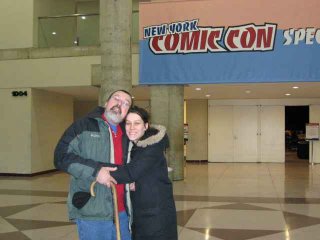
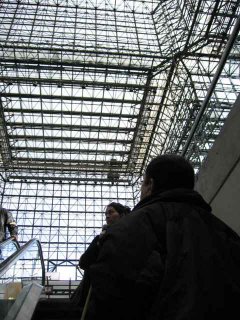


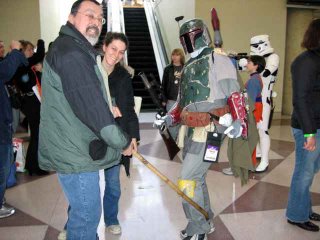


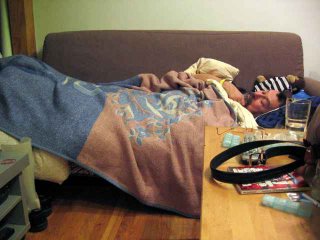








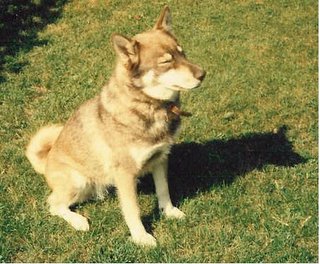


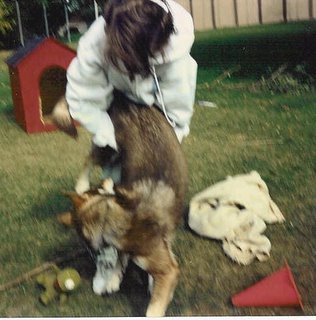











 Disney's 'Eight Below' not just a bunch of mush
Disney's 'Eight Below' not just a bunch of mush

 "I think Cheney is starting to lose it. After he shot the guy he screamed, 'Anyone else want to call domestic wire tapping illegal?' "
"I think Cheney is starting to lose it. After he shot the guy he screamed, 'Anyone else want to call domestic wire tapping illegal?' "
